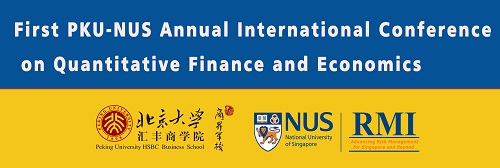The Impact of Pay-for-Performance Perception and Pay Level Satisfaction on Employee Work Attitudes and Extra-role Behaviors: An Investigation of Moderating Effects
by Ting Ren, Ruolian Fang, Zhen Yang
ARTICLE | Journal of Chinese Human Resource Management | Vol. 8, 2017
Abstract
Purpose – This paper aims to investigate the impact of pay-for-performance (PFP) perception and pay level satisfaction on work attitudes (job satisfaction, turnover intention and affective commitment) and extra-role behaviors (discretionary effort and interpersonal helping), and further, how three aspects of conditional factors – intrinsic motivation, leader–member exchange (LMX) and perceived organizational support (POS) –moderate the main-effect relationships.
Design/methodology/approach – The study was conducted at a Chinese private-owned company in the beauty industry, and a survey was conducted with the frontline employees in each office, asking information
about their perceptions and attitudes toward the PFP scheme implemented in the company, work attitudes and performance, individual characteristics and their perceptions of group and organizational characteristics.
Findings – Results show that PFP perception and pay level satisfaction are significant predictors of work attitudes and extra-role behaviors. Further, depending on the specific work outcome examined, the three conditioning factors are found to strengthen the hypothesized main-effect relationships. The findings of the study have important theoretical and practical implications for the implementation of PFP schemes in organizations.
Originality/value – The findings contribute to the scholarship on PFP schemes in two ways. First, the findings show that PFP perception and pay level satisfaction are important for understanding employee work attitudes and extra-role behaviors. Second, the investigation of the moderating roles that intrinsic motivation, LMX and POS play in the relationships of PFP perception and pay level satisfaction with the work outcomes provides evidence to the limited understanding about the conditions that may strengthen or weaken the effectiveness of PFP schemes.
Popular Articles
-
 International Student Profile: Kevin Kurnia
International Student Profile: Kevin KurniaOct 12 2017
-
 PHBS Opening a Campus in UK: Se...
PHBS Opening a Campus in UK: Se...Feb 22 2017
-
 PHBSers: Wishing You a Better Year Ahead!
PHBSers: Wishing You a Better Year Ahead!Dec 30 2016
Latest News
-
Yeujun Yoon: Rise to Challenges and Find the True Calling
Time:Feb 23 2018
-
PHBS Exchange Students: Heavier Luggage, Fuller Hearts
Time:Jan 23 2018
-
PHBS 2018 Winter Camp: When Pyth...
Time:Jan 23 2018
Campus Events










